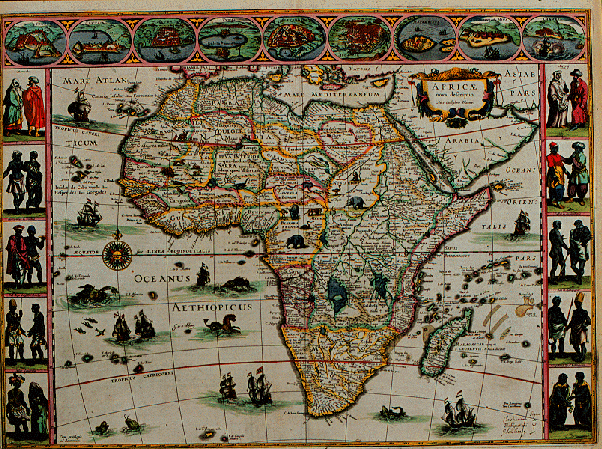Democracy & Governance
Effects Of Tribalism And Favouritism On African Democracy
Ethnicity in Africa has become a second religion. Political parties and elections have gradually taken ethnic positions. This has negatively impacted the quality of governance on the continent. Many African leaders no longer have a reason to perform in government as they are sure of winning elections due to their ethnic group. Positions meant for technocrats and qualified individuals are now used to strengthen the grip of ethnic groups on political power, therefore, affecting the quality of governance.

One of the greatest obstacles to unity in many African nations is the rivalry among the ethnic groups in the country as hawks of each ethnic group embark on the mission to dominate the others, especially when in charge of political power. Many African political leaders are also culpable of seeing acts of patriotism as loyalty to ethnicity rather than nationality. This flawed school of thought has impacted democratic discussions in many African nations. Nigeria for example exemplifies this as political discussions nowadays tend to revolve around a North Versus South foundation rather than an objective and holistic national discussion.

To be fair on African nations, we are faced with a condition that several European countries are not faced with. The average European country is virtually monoethnic or monolingual. In cases where there have been variations, the management of the problem has been catastrophic such as in the case of Yugoslavia which set the Balkans on fire and the English crisis in Ireland. However, we cannot continue to make excuses for African nations 6 decades after the wave of independence. No society can boast of full assimilation of the different ethnic groupings, however, the nonchalance of African nations to the task of assimilation is a major problem.
Ethnicity in Africa has become a second religion. Political parties and elections have gradually taken ethnic positions. This has negatively impacted the quality of governance on the continent. Many African leaders no longer have a reason to perform in government as they are sure of winning elections due to their ethnic group. Positions meant for technocrats and qualified individuals are now used to strengthen the grip of ethnic groups on political power, therefore, affecting the quality of governance.
As Africa grapples with corruption, corrupt individuals escape being held accountable because members of their clan will rather keep quiet than allow a member of the clan to face political disgrace. This is due to the benefits of patronage attached to having a member of the clan in power. Such an individual is expected to disburse government contracts and jobs to members of his ethnic group. This then packs the civil service with less competent individuals who in the long run reduces the productivity of government apparatuses.
The building of political ideas around ethnicity has also heightened political tensions over the years. The power play and clash between genuine democratic forces and that of tribalism have over the years helped breed mediocrity in governance dragging African societies to the edge of civil disintegration and savagery. This has in the long run built a system of distrust amongst the different ethnic groups as genuine developmental strides are rejected on the altar of ethnic egos. Objective government policies are rejected because it seem to threaten the dominance of some particular interest groups while salient national issues and demands which are supposed to be at the forefront of national discourse are trivialised and reduced to ethnic agitations and tribal demands.
In the midst of these unending tribal crisis however, there lie solutions. First of all, African countries must sit down to analyse and draw out realistic course for nationhood. African countries were established by the European for the purpose of colonial occupation, hence, the structures put in place were suitable for colonialism. It is therefore pertinent for nations like Nigeria to have an holistic national discourse on the proper structure of governance which will not leave any ethnic group at the mercy of the other.
Furthermore, the masses need to be reoriented that political patronage is just a placebo and not a solution to the problem. The challenges associated with irresponsible leadership do not respect the ethnic group of the leader. Having the president from your tribe doesn’t replace qualitative education and a working health system, therefore, people should be educated to ask the right questions.
Also, aggressive commitment to economic prosperity remains the most lasting solution to solving the problems of ethnic divisions. In a failed system where many drift into poverty, people tend to hold on to ethnic identities as solace, however, in an atmosphere of economic prosperity, these ethnic identities dissolve to the backwaters. This is a vital lesson Canada has taught us in her handling of Quebec.




















